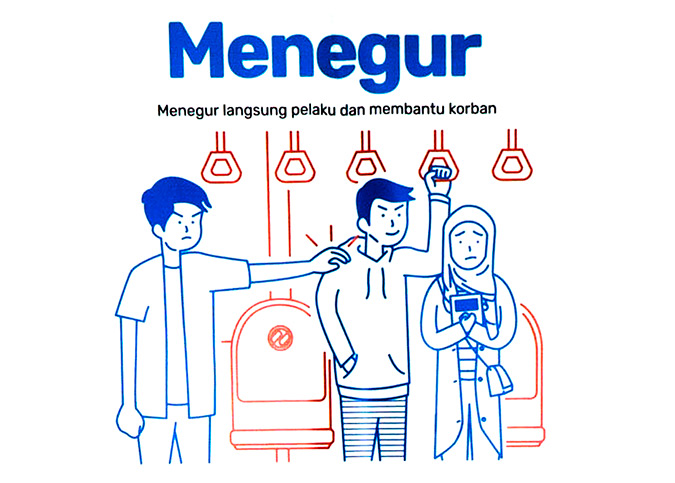Joint Op-Ed: Urgent Actions to end violence against girls and women
Date:
Authors: Anita Nirody, Sabine Machel, and Annette Sachs Robertson
The women's rights movement has struggled for decades to persuade the international community that violence against women is a human rights issue, not just a private matter between individuals.
Dec. 10 marks the end of 16 Days of Activism to Eliminate Violence Against Women, a global campaign that unites people across the world to end this epidemic. It is also Human Rights Day.
Violence against women is among the most wide-spread human rights violations globally. It is unacceptable that in the 21st century, one in three women experiences violence at least once in her lifetime. While progress has been made, it is important to acknowledge that there are still far too many women and girls who experience violence. It is the most extreme manifestation of gender inequality. It is occurring every day, and it knows no geographic or socio-economic boundaries.
In Indonesia, sexual and physical violence is a daily reality for many women. A new nationwide survey commissioned by Indonesia's Women's Empowerment and Child Protection Ministry, carried out by the Central Statistics Agency, with assistance from the UN shows that one in three Indonesian women have experienced physical and or sexual violence in their lifetime.
Indonesia ratified the Convention on the Elimination of All Forms of Discrimination Against Women (CEDAW) 33 years ago, and the Government has made intensive efforts to advance women's rights, including the passing of the Domestic Violence Law number 23/2004. However, challenges remain.
Gender-based violence against women is one of the fundamental social, political and economic means by which the subordinate position of women with respect to men and their stereotyped roles are perpetuated. The CEDAW Committee has made it clear that this violence is a critical obstacle to achieving substantive equality between women and men as well as to women's enjoyment of human rights and fundamental freedoms. This is what all UN member states committed to achieve through the Sustainable Development Goals, of which Goal 5 focuses on gender equality and ending violence against women by 2030. Apart from the obvious physical and mental toll violence has on women, it also destabilizes families and entire communities. The lifetime costs related to violence against women includes land exclusion, economic deprivation and trauma.
Particularly in poor communities, a small shift in productivity in subsistence societies can have major impacts on child nutrition, health and access to education. As a result, OECD estimates that discriminatory social practices including violence against women cost the global economy approximately 12 trillion US dollars a year. So, what can be done? First, identifying the root causes and countering for example, social norms that reinforce male authority and patriarchy; exposure to violence in childhood that manifests into violence later in life; drug and alcohol abuse, and poverty.
Second, focusing on prevention by directly engaging with men and boys. By targeting men's peer groups, men can be encouraged to step up with the tools and knowledge to become anti-violence champions. Third, ending violence against women requires legal reform, and cohesive action through multiple approaches. Fourth, in Indonesia and indeed around the world, fast and integrated support is needed for victims, including hotlines, comprehensive care including medical and psychological support, and of most importance, education and economic opportunities to enhance women's independence.
Fifth, ending early marriage. One in four girls in Indonesia are married before their 18th birthday, limiting their access to education, employment, and placing them at higher risk of maternal morbidity and mortality, perpetuating the very root causes of violence against women.
President Joko "Jokowi" Widodo has shown his personal commitment by becoming one of the ten global HeForShe champions. He has pledged to implement three commitments: Increasing the participation and representation of women in decision making, reducing maternal mortality and eliminating violence against women and girls in Indonesia.
The United Nations is working with the government and civil society organizations, to support its commitment to end violence against women. This includes partnering with communities to end child marriage, trafficking, and mainstreaming gender equality to economically, socially and politically empower women.
We have engaged government entities to share best practices from countries in the region, which has made great strides in addressing gender-based violence in recent years. Looking ahead, when passed, the law on sexual violence will provide women and girls in Indonesia with additional tools to access justice.
In Indonesia, we have seen an unprecedented amount of activity around the 16 Days of Activism to End Violence against Women. SDG Mover Hannah Al Rashid launched a video series on her YouTube channel featuring high-profile Indonesians, civil society organizations hosted community events and powerful dialogues around this issue.
Raising awareness is an important first step, but it is not enough. Strong and cohesive actions are needed.
About the authors:
Anita Nirody, UN Resident Coordinator, Indonesia
Sabine Machel, Representative, UN Women, Indonesia
Annette Sachs Robertson, Representative, UNFPA, Indonesia
This Op-Ed has been published in The Jakarta Post, 8 December 2017
